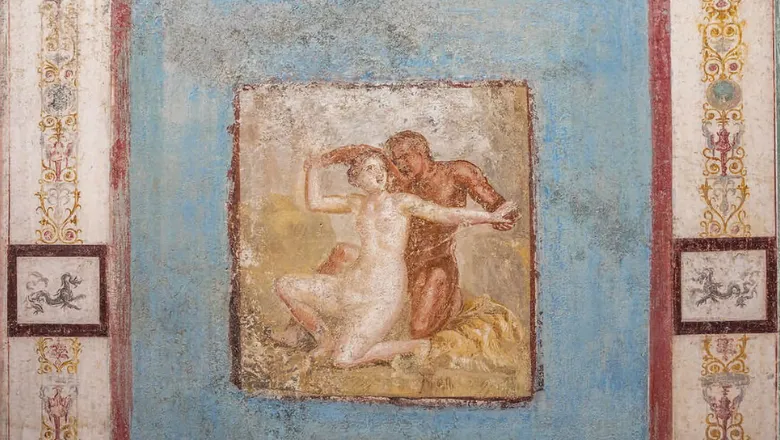We encourage readings which showcase how ancient sexuality permeates Greek and Roman literature and culture and highlight the ramifications of ancient law, science and medicine for the conceptualisation of ancient sexuality.
Dr Martin Dinter, Reader in Latin Literature
10 April 2025
Conference delves into sexuality in the ancient world
Speakers will cover a range of topics from incest to STIs, women's health and the significance of sexuality in ancient Greek and Roman society.

Ancient Sexuality Revisited (26-28 June 2025), co-hosted by Dr Martin Dinter, King's Department of Classics, Centre of Medical Humanities, Centre of Late Antique and Medieval Studies and Queer at King's aims to shift debate towards discussion around ancient law, ancient science and ancient medicine in relation to sexuality.
The event is generously supported by the Institut Universitaire de France and the University of Toulouse and will welcome to King's River Room, speakers from the UK, Austria, Brazil, Canada, Cyprus, France, Greece, Germany, Ireland, Italy, Portugal and Spain.
Keynote speakers will discuss topics including the list of animal (including hare, bull, and hyena) remedies for treating women's ailments provided by the ancient Roman writer Pliny the Elder that have medical properties helpful (or dangerous) to women in many ways, from menstruation to pregnancy.
Another will showcase that the Romans had no word for venereal disease. Nevertheless, Latin medical authors describe conditions that seem to align with what we now call sexually transmitted infections (STIs), yet they did not recognise sexual contact as the mode of transmission. However, some non-medical authors appear to have perceived a connection between sexual intercourse and the spread of certain diseases.
Other talks will examine incestuous desire in Plato, the Roman poet Lucretius’ conceptualisation of semen, reflect on male homosexual relationships in Latin historiography and rhetoric, and discuss theories of nature vs nurture in Greek and Latin ethnographies and the use of erotic poetry in ancient court cases.
Academics wishing to participate should contact the organiser. Find out more information here.
